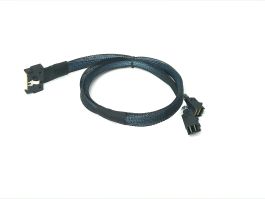Hello. Brand new to true nas. Built a system to host all my personal data, plex, VMs and more. Acquired 12 white label Seagate 20TB SAS drives from https://shop.digitalspaceport.com
Before putting any data on them I decided to run some tests. Just finished a long test on all of them. Took about 1.5 days to finish. Then ran a very quick Scrub, which took like 3 seconds, since the drives are empty. Now under Devices section I see two faulted and two degraded disks. Here are the output commands for each drive. The info is identical for all four, I am giving the first drive with Faulted status. Please help me figure out if drives should be sent back for replacement as I have only 30 days to return them.
Got an email as well:
TrueNAS @ truenas
New alert:
Before putting any data on them I decided to run some tests. Just finished a long test on all of them. Took about 1.5 days to finish. Then ran a very quick Scrub, which took like 3 seconds, since the drives are empty. Now under Devices section I see two faulted and two degraded disks. Here are the output commands for each drive. The info is identical for all four, I am giving the first drive with Faulted status. Please help me figure out if drives should be sent back for replacement as I have only 30 days to return them.
Code:
xxxx@truenas ~ % sudo smartctl -a /dev/sdd
smartctl 7.2 2020-12-30 r5155 [x86_64-linux-5.15.107+truenas] (local build)
Copyright (C) 2002-20, Bruce Allen, Christian Franke, www.smartmontools.org
=== START OF INFORMATION SECTION ===
Vendor:
Product: OOS20000G
Revision: OOS1
Compliance: SPC-5
User Capacity: 20,000,588,955,648 bytes [20.0 TB]
Logical block size: 512 bytes
Physical block size: 4096 bytes
LU is fully provisioned
Rotation Rate: 7200 rpm
Form Factor: 3.5 inches
Logical Unit id: 0x5000c500da75356f
Serial number: 0007QPYR0000W319HVE7
Device type: disk
Transport protocol: SAS (SPL-3)
Local Time is: Fri Sep 22 21:32:50 2023 EDT
SMART support is: Available - device has SMART capability.
SMART support is: Enabled
Temperature Warning: Enabled
=== START OF READ SMART DATA SECTION ===
SMART Health Status: OK
Grown defects during certification <not available>
Total blocks reassigned during format <not available>
Total new blocks reassigned <not available>
Power on minutes since format <not available>
Current Drive Temperature: 38 C
Drive Trip Temperature: 60 C
Accumulated power on time, hours:minutes 278:31
Manufactured in week 31 of year 2023
Specified cycle count over device lifetime: 50000
Accumulated start-stop cycles: 8
Specified load-unload count over device lifetime: 600000
Accumulated load-unload cycles: 2495
Elements in grown defect list: 0
Error counter log:
Errors Corrected by Total Correction Gigabytes Total
ECC rereads/ errors algorithm processed uncorrected
fast | delayed rewrites corrected invocations [10^9 bytes] errors
read: 0 0 0 0 0 0.354 0
write: 0 0 0 0 0 14.879 0
Non-medium error count: 0
[GLTSD (Global Logging Target Save Disable) set. Enable Save with '-S on']
SMART Self-test log
Num Test Status segment LifeTime LBA_first_err [SK ASC ASQ]
Description number (hours)
# 1 Background long Completed - 276 - [- - -]
# 2 Background short Completed - 213 - [- - -]
Long (extended) Self-test duration: 65535 seconds [1092.2 minutes]Got an email as well:
TrueNAS @ truenas
New alert:
- Pool RAIDZ2 state is DEGRADED: One or more devices are faulted in response to persistent errors. Sufficient replicas exist for the pool to continue functioning in a degraded state.
The following devices are not healthy:- Disk OOS20000G 0007QPYR0000W319HVE7 is FAULTED
- Disk OOS20000G 0007BLPZ0000W319JLD6 is DEGRADED
- Disk OOS20000G 0008A0LF0000W320NMSU is FAULTED
- Disk OOS20000G 0007W6WJ0000C32431HJ is DEGRADED
Last edited:


